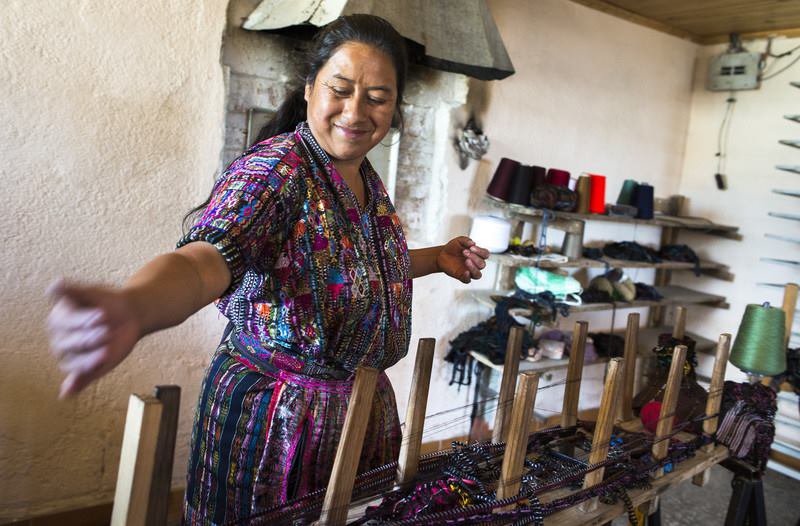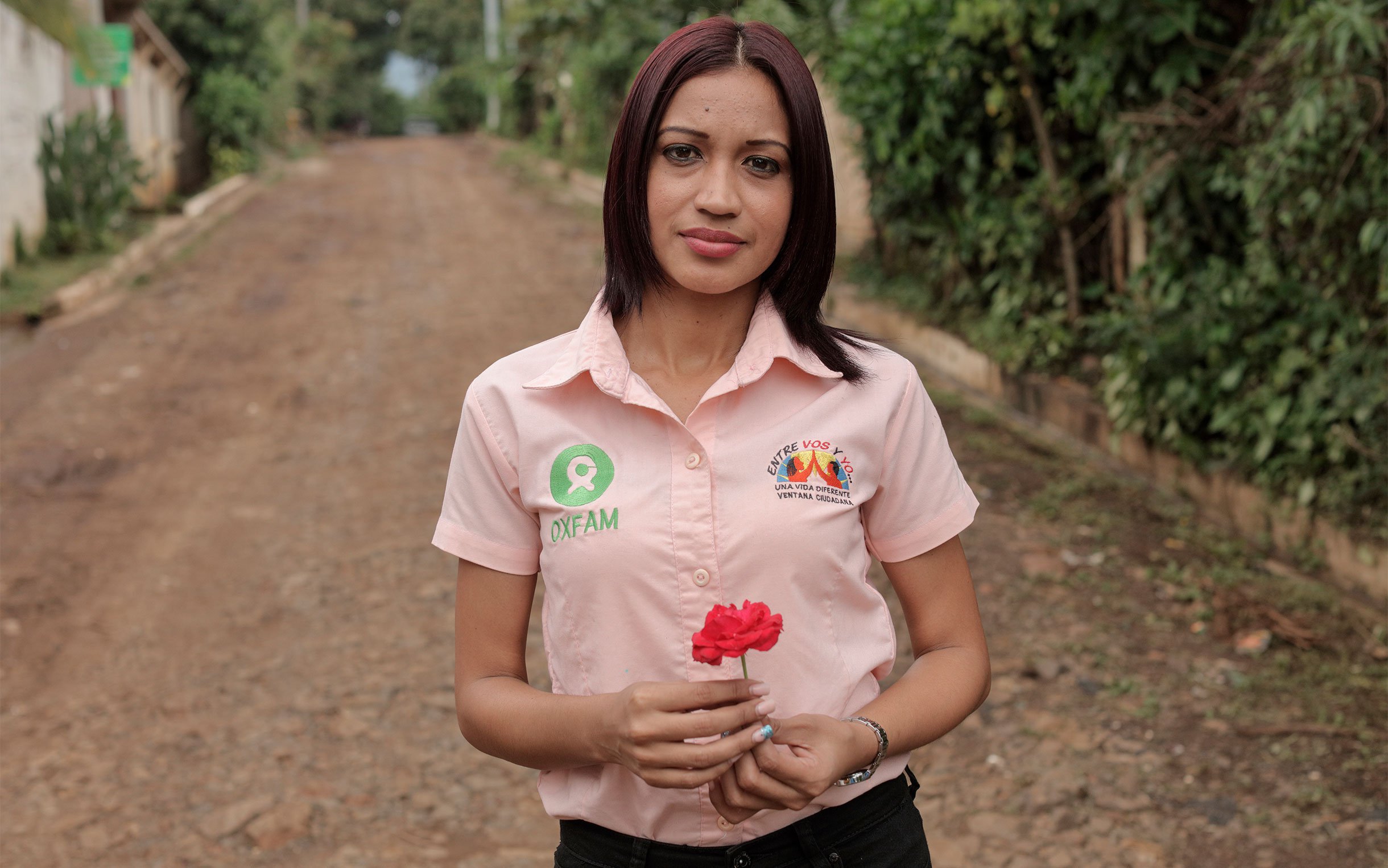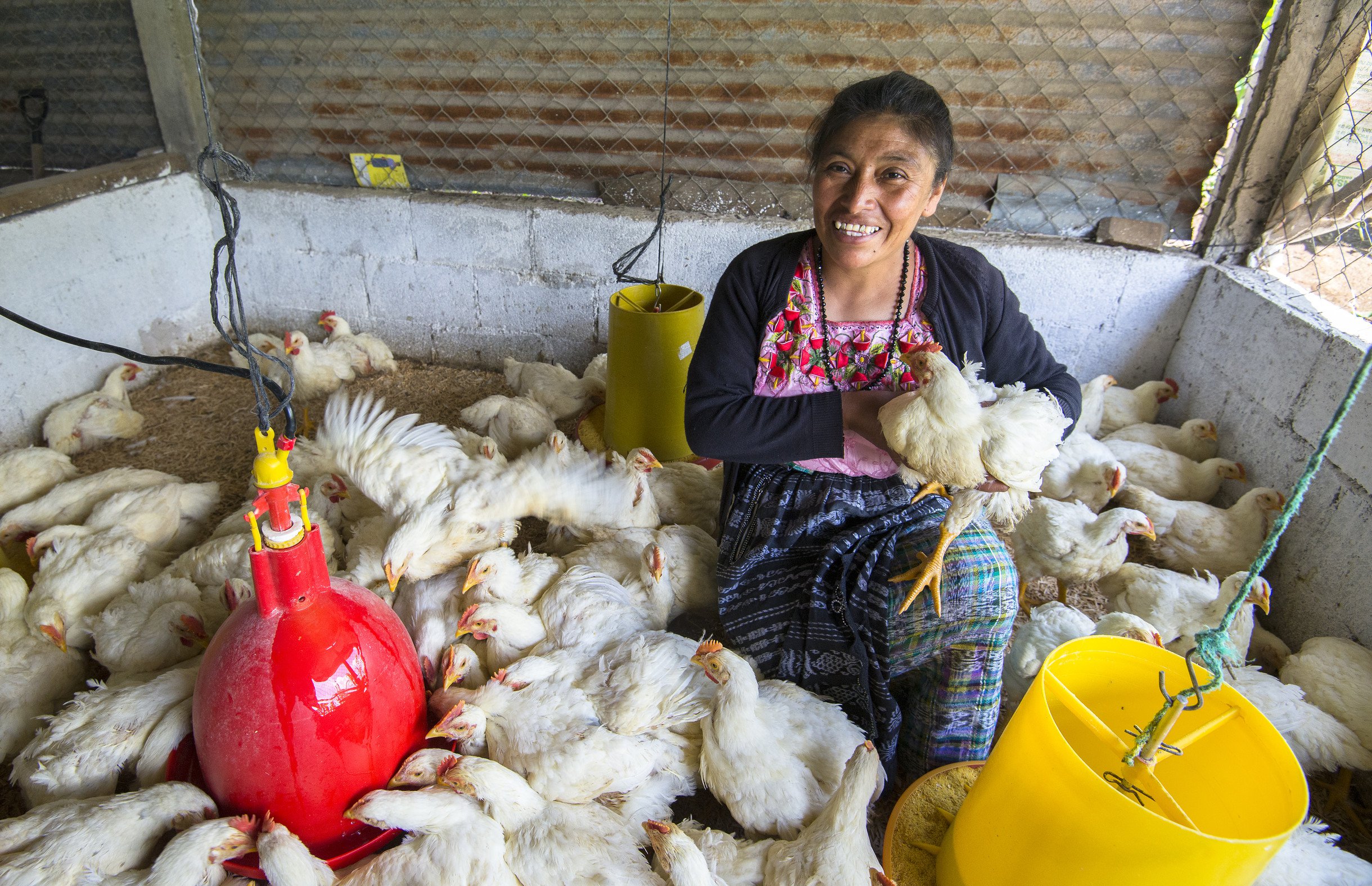When women thrive, communities thrive.
Thousands of people in Central America are fleeing their homes from corruption and injustice. As this migration crisis continues, it is disproportionately affecting women and girls.
For more than three decades, Oxfam has been working in Central America to tackle violence, poverty, and food insecurity--the root causes driving women to flee in the first place. We support those struggling with economic hardship, provide women with education and skills to break the cycle of domestic abuse, and help women organize to rise up together.
As International Women's Day approaches, we have a moment to reflect on accomplishments of women around the world. This year, we have chosen to focus on the strength and resilience of women from Central America.
This photo series looks back at the inspirational women we have met through our work in Guatemala, Honduras, and El Salvador.
Schooling kids on their rights

Mildred Rocsana Cumes works on violence prevention with Oxfam in Guatemala. She helps students, as young as these third graders in the village of Chukumuk, understand what sexual violence is and teaches them how to establish boundaries.
"I taught them their rights as children," she says. "They own their own bodies. They have to be very attentive to themselves and their siblings."
Leading disaster recovery

Karen Ramirez discusses storm response with other members of the Water Sanitation and Hygiene Sub-commission in Las Salinas, El Salvador, after a storm surge destroyed fresh water supplies. Ramirez dedicated the last 20 years to fighting for the rights of El Salvador's poorest.
"Traditional humanitarian response does not strengthen communities or local organizations," she explains. "It weakens us and makes us dependent. What we need to see more of is the international community helping countries like El Salvador handle emergencies ourselves."
Taking care of business

Ana Dominga Cuc Baquin sells traditional Guatemalan hand-woven and embroidered goods at her shop in San Isìdro. Bacquin started her shop with a Women in Small Enterprise loan from Oxfam and is using the profits to help her feed her family and send her children to school.
"I feel good," she tells us. "When I go to market, I can take a lot of variety--so clients don't go anywhere," she says.
Lifting each other up

Dorila Ramirez de Hernández, Maria Emma Diaz Fuentes, Beatriz Gloribel Ramírez de Ortiz, and Doris Olímpia de Ramirez (left to right) are members of a savings group in Morazán, one of the poorest provinces in El Salvador. They sell traditional Salvadoran food to make extra money.
Speaking up for the silenced

Karla Gutiérrez lost a close friend to femicide at the hands of a jealous husband in Ahuachapán, El Salvador, an area known for high femicide rates. Gutiérrez is using grief as a motivation for her work leading a volunteer effort to speak about violence against women and girls at community schools.
"We teach [students] about their sexual and reproductive rights," she says. "We ally with nurses and doctors in the community so students can learn about birth control methods, and prevention of sexually transmitted diseases."
Family fights together

Marta Eugenia Sánchez, 50, Katerin Judith Sánchez Pérez, 23, and María José Sánchez, 5, represent three generations committed to women's rights and gender violence prevention. They are members of Las Gardenias Women Association, a group that trains women on advocating for women's right, in Ahuachapán, El Salvador.
Counting her chickens

Carmen María Can Pixabaj owns a poultry production business in Sololá, Guatemala, where she raises up to 450 chickens at a time. When she brings her chickens to market, her poultry sells out within the hour.
"I help my children pay for their studies and things we need for the home," she explains. "I feel much more sure of myself because I know I can make ends meet myself."
Resisting resource exploitation

Daysi Carrillo is an environmental activist in the Cabañas region of El Salvador, and a member of MUFRAS-32, a coalition that successfully blocked a gold mine that threatened to pollute the Titihuapa River. The government later passed a law proposed by MUFRAS-32 and others that outlaws metal mining in the country.
Doing it for her daughter

Maria Rodriguez and her daughter Noemi, 11, at home in Honduras. Rodriguez is an employee at the CREPAIMASUL cooperative, which specializes in growing organic cashew nuts in the drought-prone Choluteca region.
"My daughter is my motivation," she says. "She's a very good student. I want to support her to do whatever she wants. I want the best for her."
